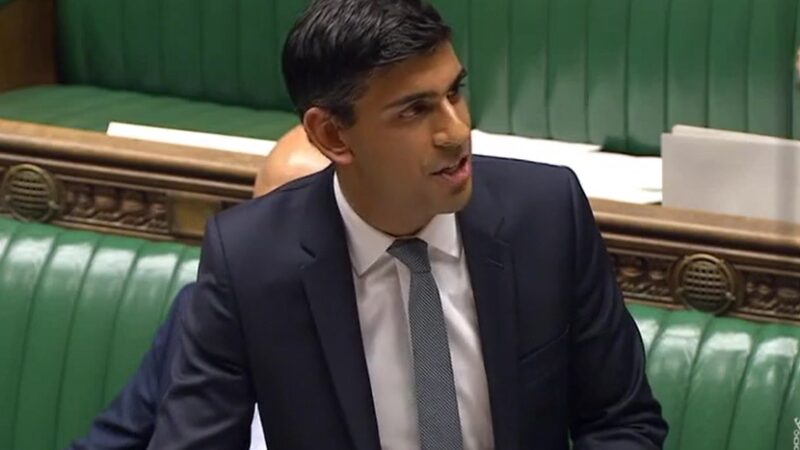The chancellor is facing further pressure amid claims that suggested strategies to help the poorest households were vetoed by the Treasury.

A leaked document obtained by the i newspaper shows an official suggesting increasing the amount of the energy bills rebate from “£200 to £500 or more – either for all or just for fuel poor households.”
It is believed that the document was from a Business Department official who was asked for options on what more the government could do to help households but was never formally tabled.
It is understood that another proposal outlined by business secretary Kwasi Kwarteng’s department to delay the repayment or extend the repayment period, was also dismissed. Further proposals to make households on low incomes exempt from paying back the rebate, are also believed to have been rejected by the Treasury.
The document reportedly said: “We could boost the recently announced rebate scheme. There are three options: a) Increase the amount of the rebate e.g. from £200 to £500 or more – either for all or just for fuel poor households; b) Delay the point at which the rebate has to be repaid and/or extend the repayment period – again either for all or targeted at the fuel poor; c) Exempt at least some fuel poor households from all or some repayment.”
The government has not denied the suggestions were vetoed by the Treasury. In response to the accusations, a government spokesperson said: “We understand that people are struggling with the rising cost of living – we can’t shield everyone from the global challenges we face but we’re putting billions of pounds back into the pockets of hard-working families across the UK.
“We are taking action worth over £22 billion next financial year to help people with the cost of their energy bills and to ensure people keep more of their money, including increasing the National Insurance thresholds saving a typical employee over £330 a year, boosting incomes by £1,000 for an average full-time worker by increasing the National Living Wage and helping low-income families keep more of what they earn by reducing the Universal Credit taper rate.”
£200 ‘discount’ roundly criticised
The latest revelation puts additional pressure on the chancellor, whose £200 repayment scheme has been widely derided.
Since it was announced in February, the measure that will see UK households given £200 rebates in October to cover soaring energy costs, has the subject of growing controversy and has come under intense scrutiny and criticism.
The initiative involves households making repayments of £40 a year over the next five years, until the amount is repaid.
Rishi Sunak rejected criticism this week that the “heat now, pay later” scheme will inevitably place people in debt, insisting to MPs that, “It is not debt. It is not a loan.”
The latest controversy about Rishi Sunak’s heavily condemned energy rebate initiative, was followed by an embarrassing debate about the repayments on BBC’s Question Time this week.
The Question Time audience was left both bemused and amused when Greg Hands, minister of state for business, energy and clean growth, struggled to convince them that the one-off £200 repayable reduction in energy costs is a ‘discount’ rather than a loan.
The week has been especially uncomfortable for the chancellor himself, who is facing growing pressure over alleged “conflicts of interest” involving his past US residency and his wife’s tax affairs.
Gabrielle Pickard-Whitehead is a contributing editor to Left Foot Forward
Left Foot Forward doesn't have the backing of big business or billionaires. We rely on the kind and generous support of ordinary people like you.
You can support hard-hitting journalism that holds the right to account, provides a forum for debate among progressives, and covers the stories the rest of the media ignore. Donate today.



